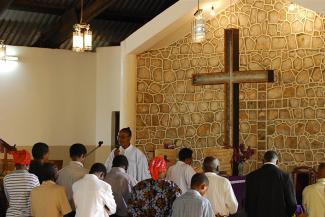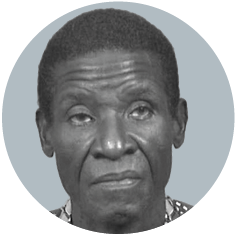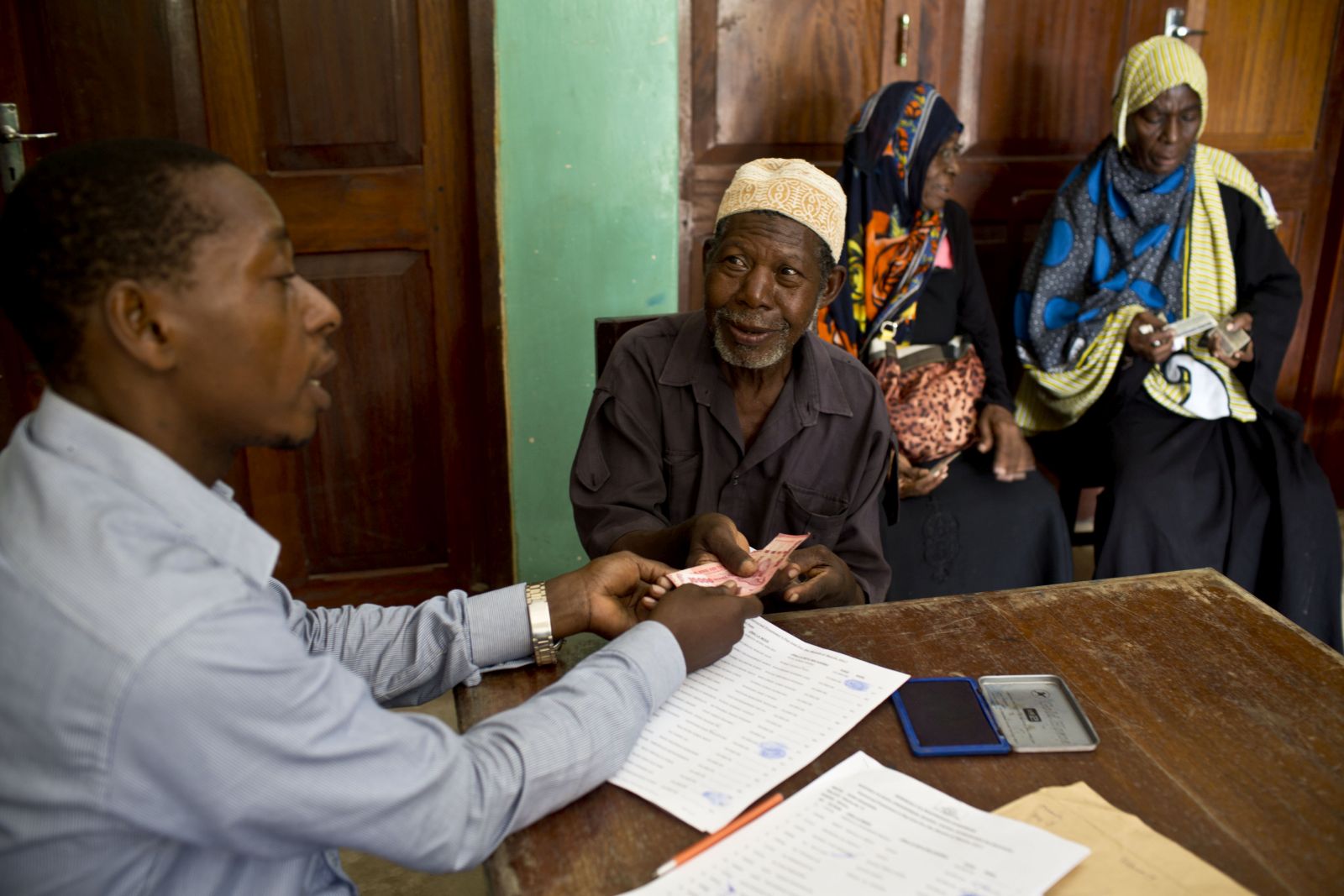Tanzania
Praising the social market economy

The Interfaith Confederation has expressed itself in favour of Tanzania adopting a social market economy following the German model. The social market economy combines a capitalist system with safety nets and social infrastructure that prevent or at least alleviate poverty. The model requires strong social protection policies and legal provisions that ensure opportunities for all.
In contrast to socialism, the state is neither supposed to plan nor control investments, labour, production and distribution of goods. However, prudent regulation must ensure a healthy business environment. Policies guiding issues such as taxes, competition, social protection, education or trade must serve this purpose.
In Tanzania, the Konrad Adenauer Stiftung (KAS), which is close to Germany’s Christian Democrats, has recently published a book on the issue. It was written by a team of experts who were coordinated by the Interfaith Confederation. An author from the KAS was involved too. The Interfaith Confederation has announced that it has decided it will henceforth pay more attention to economic affairs in general. Indeed, both Christendom and Islam are marked by ideas of social justice, charity and opportunities for all.
Faith leaders were present at the book launch in Dar es Salaam. Sheikh Hassan Kabehe, head of the Tanzania Muslim Council in the northwestern Mwanza region, said: “Religious leaders have a responsibility of responding in shaping the economy as economies are part of religion, which is in itself not all about spiritual issues only.”
As an independent nation, Tanzania has tested other economic models in recent decades. In 1967, the government opted for what it called “African Socialism”. The idea was that state control of the production of forces would lead to equality and prosperity. It failed, as became absolutely obvious by the time the Soviet Union collapsed.
In 1992, Tanzania therefore adopted the free market economy and liberalised foreign trade. The emphasis was on private sector development, but most Tanzanian businesses could neither keep up nor cooperate with their international competitors. Moreover, they were not allowed to attract foreign investors.
The free market economy has not delivered the desired results. Social disparities are growing, and poverty is widespread. The country has almost 60 million people, but it only ranked number 159 on the UNDP’s Human Development Index last year. The index reflects per capita income, life expectancies and educational achievements.
The new book endorses the social market economy because this model brought about Germany’s economic miracle after World War II. The authors argue that, adapted to Tanzanian circumstances, it should facilitate inclusive and sustainable development.
Tanzania’s top faith leaders agree that they have shied away from economic questions for too long. The Interfaith Confederation acknowledges that social services and economic activity need to be reconciled. Father Charles Kitima, the executive secretary of the Catholic Tanzania Episcopal Conference, argues that by adopting the social market approach, the country can become strong economically and competitive in regional and international markets. Stephen Munga, the Lutheran Bishop who chairs the Interfaith Confederation, says: “We don’t want to see anyone left behind.”
Lawrence Kilimwiko is a journalist, author and media advisor based in Dar es Salaam.
lkilimwiko@yahoo.com
Book
KAS-Tanzania, 2019: Social Market Economy model for Tanzania: Towards inclusive and sustainable economic development – Smet model.













